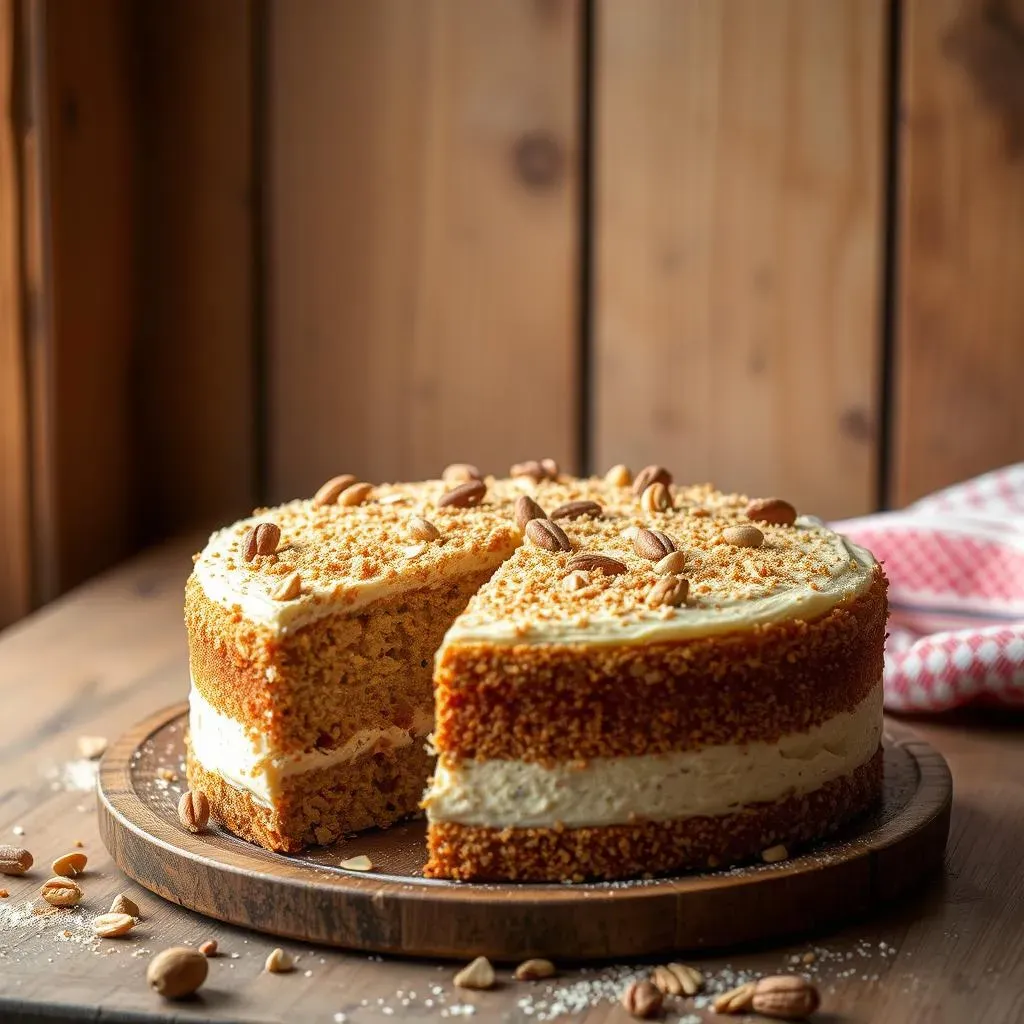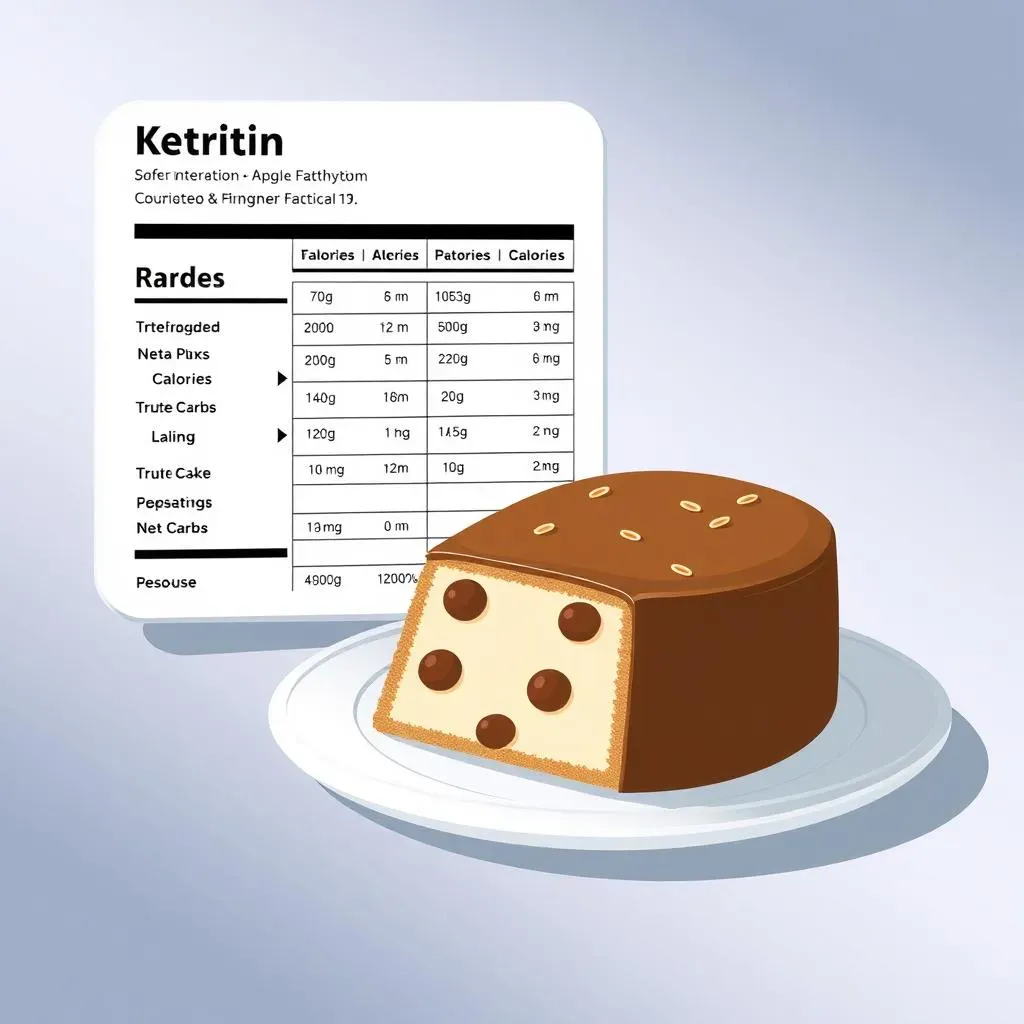Table of Contents
Let's face it: cake is delicious. But if you're following a ketogenic diet, the question "is keto cake healthy?" immediately pops up. It's a tempting treat, but is it a smart one? This article cuts through the confusion, providing a balanced look at keto cakes. We'll explore the fundamentals of the keto diet and how it relates to baked goods. Then, we'll dive into the ingredients that make a keto cake tick, highlighting what to choose and what to avoid. We'll break down the nutritional information – calories, macros, and all – so you can make informed choices. Finally, we'll offer our honest verdict on whether or not indulging in a keto cake aligns with your health goals. Get ready to satisfy your sweet tooth *and* your curiosity! Prepare to discover if that slice of keto cake is truly as virtuous as it seems. This isn't just about recipes; it's about making smart decisions that support your dietary journey. Let's get started!
Understanding the Keto Diet and Cake
Understanding the Keto Diet and Cake
The Ketogenic Principle
The keto diet centers around drastically reducing carbohydrate intake and replacing it with healthy fats. This metabolic shift forces your body to burn fat for energy instead of glucose (sugar from carbs). Think of it like switching your car's fuel source from gasoline to diesel – it still runs, just differently. This process, called ketosis, produces ketones, which become your body's primary fuel. It's a powerful approach for weight loss, but it requires careful planning, especially when it comes to treats like cake!
Now, traditional cakes are carb bombs. They're made with flour (carbs!), sugar (carbs!), and often other carb-heavy ingredients. So, a regular cake on keto? Absolutely not. But that doesn't mean you need to give up cake altogether. The beauty of keto baking lies in finding clever substitutions to create delicious treats that still align with your dietary goals. Want to learn more about keto-friendly alternatives to rice cakes? Check out our guide on rice cakes and the keto diet.
Macronutrient | Standard Cake | Keto Cake |
|---|---|---|
Carbohydrates | High | Very Low |
Fat | Moderate | High |
Protein | Moderate | Moderate |
Keto and Cake: A Delicious Paradox
The challenge with keto cakes isn't just about avoiding carbs; it's about maintaining texture and taste. Regular cakes rely on flour for structure and sugar for sweetness. Keto baking needs clever replacements. Almond flour, coconut flour, and other low-carb flours provide structure, while sugar substitutes like erythritol and stevia offer sweetness without the carb overload. The result? A cake that’s surprisingly satisfying, even if it's vastly different from its carb-laden counterpart. For more information on whether store-bought keto cakes are a good option, read our article on Whole Foods keto cakes.
However, it's crucial to remember that even keto cakes aren't exactly health food. They are still treats, and moderation is key. While they're lower in carbs than traditional cakes, they are often higher in fat. This means that portion control is important to prevent exceeding your daily caloric needs and maintain the benefits of the ketogenic diet. Finding the right balance is the key to enjoying these treats without derailing your progress. Learn more about what can happen if you cheat on your keto diet with our guide on eating cake on keto.
- Choose low-carb flours (almond, coconut)
- Use sugar alternatives (erythritol, stevia)
- Prioritize healthy fats (avocado oil, butter)
- Practice portion control
KetoFriendly Cake Ingredients: What to Use (and Avoid)
KetoFriendly Cake Ingredients: What to Use (and Avoid)
Flour Power: The Low-Carb Foundation
Forget all-purpose flour! That's a major carb culprit. Instead, embrace the world of low-carb flours. Almond flour is a popular choice, lending a slightly nutty flavor and a tender crumb. Coconut flour is another option, though it can be drier, so recipes often require more liquid. Other alternatives include oat flour (make sure it's certified gluten-free and low-carb), and even flaxseed meal can be used in certain recipes. Experiment to find your favorite! Need more ideas for keto-friendly options? Check out our guide on are keto cakes healthy.
Remember, the type of flour you choose significantly impacts the texture and taste of your keto cake. Almond flour generally results in a lighter, fluffier cake, while coconut flour produces a denser, more cakey result. Experimenting with different flour blends can also yield interesting results. For example, a blend of almond and coconut flour can help achieve a good balance of texture and moisture. Don't be afraid to get creative and discover your perfect flour combination!
Flour Type | Texture | Flavor |
|---|---|---|
Almond Flour | Light & Fluffy | Nutty |
Coconut Flour | Dense & Cakey | Slightly Sweet |
Oat Flour (Gluten-Free) | Similar to All-Purpose | Mildly Sweet |
Sweetening the Deal: Sugar Substitutes and More
Sugar is another major carb source in traditional cakes. Thankfully, there's a plethora of keto-friendly sweeteners. Erythritol is a popular choice because it tastes very similar to sugar and doesn't cause a significant blood sugar spike. Stevia is another excellent option, known for its intense sweetness and minimal impact on blood sugar. Monk fruit sweetener is also a good choice, offering a natural sweetness without the aftertaste that some other sweeteners have. Knowing the differences between these sweeteners is key, as they can impact the final taste of your cake. For instance, Stevia can have a slightly bitter aftertaste if not used correctly.
Beyond sweeteners, remember that many fruits are high in carbs. While some berries can be incorporated in moderation, it's best to avoid heavily relying on them in your keto cakes. Focus instead on enhancing the flavor with spices like cinnamon, vanilla extract, or cocoa powder. These additions can significantly boost the taste and create a more complex flavor profile without adding excess carbs. You can also add nuts and seeds for texture and healthy fats. For more information on keto-friendly alternatives to other common ingredients, check out our post on is cake keto-friendly?
- Erythritol: Similar taste to sugar
- Stevia: Intensely sweet, may have a slight aftertaste
- Monk Fruit: Naturally sweet, minimal aftertaste
- Spices: Cinnamon, vanilla, cocoa powder
Nutritional Breakdown: Calories, Macros, and More
Nutritional Breakdown: Calories, Macros, and More
Understanding the Numbers
Let's get down to the nitty-gritty: the nutritional facts. A keto cake's calorie count varies wildly depending on the recipe, ingredients, and portion size. However, the key difference lies in the macronutrient breakdown. Unlike a traditional cake, a keto cake is designed to be high in fat, moderate in protein, and extremely low in carbohydrates. This is crucial for maintaining ketosis. The goal is to get most of your calories from healthy fats, which the body efficiently uses for energy in a state of ketosis. Need help figuring out if certain cakes are keto-friendly? Check out our guide on is cake keto-friendly.
Remember that portion size significantly impacts the nutritional values. A small slice of keto cake might fit comfortably within your daily macros, while a larger serving could easily throw you off track. Always check the recipe for nutritional information, and use a food scale to measure ingredients accurately for the most precise macro counting. It's also important to account for any additional toppings or frostings you may add, as these can add significant calories and carbs.
Macronutrient | Typical Keto Cake (per serving) | Traditional Cake (per serving) |
|---|---|---|
Calories | 250-350 | 300-500+ |
Fat (grams) | 20-30 | 5-15 |
Protein (grams) | 5-10 | 5-10 |
Net Carbs (grams) | 2-5 | 20-40+ |
Impact on Blood Sugar
Because keto cakes are low in carbs, they generally have a minimal impact on blood sugar levels compared to regular cakes. This is a significant advantage for individuals with diabetes or those watching their blood sugar. However, it's essential to remember that even with low-carb options, individual responses to different sweeteners can vary. If you have diabetes or other health concerns, it's always best to consult your doctor or a registered dietitian before incorporating keto cakes into your diet.
The type of sweetener used also plays a role. Some keto-friendly sweeteners are processed differently by the body than others. While erythritol generally doesn't significantly raise blood sugar, some individuals might experience a slight increase. It is always wise to monitor your blood sugar levels after consuming keto cakes, especially if you're managing a health condition. For more on the impact of different dietary choices on your body, you might find our article on what happens if you eat cake on keto helpful.
- Monitor blood sugar levels after consumption.
- Consult a doctor or dietitian for personalized advice.
- Be mindful of individual responses to sweeteners.
The Verdict: Is Keto Cake a Healthy Choice?
The Verdict: Is Keto Cake a Healthy Choice?
The Truth About Keto Cakes
So, is keto cake truly "healthy"? The answer, like most things in nutrition, is nuanced. It's not a health food in the traditional sense. It's a treat, a delicious indulgence that allows you to enjoy cake while sticking to your ketogenic diet. But let's be clear: it's still cake, and moderation is key. Overindulging, even in keto-friendly treats, can lead to exceeding your daily calorie goals and potentially hinder your progress. Remember, the keto diet's success depends on maintaining a proper balance of macros, and even keto cakes can throw that balance off if consumed excessively. If you're struggling to find the right balance in your keto diet, you might find this article useful: What happens if you eat cake on keto?.
The real benefit of keto cake lies in its ability to satisfy cravings without the significant carb load of a traditional cake. This can be a huge psychological win for those following the keto diet. The psychological aspect of food choices is often overlooked, but avoiding cravings can be a crucial part of successful weight management and overall well-being. Consider it a way to enjoy a sweet treat without the guilt – a mental health boost, if you will. For more tips on making healthy choices within a ketogenic lifestyle, check out this guide on are keto cakes healthy?.
- Keto cakes are treats, not health foods.
- Moderation is crucial for maintaining ketosis.
- Satisfies cravings without high carbs.
- Can provide a mental health benefit.
Making Informed Choices
Ultimately, whether or not a keto cake is a "healthy" choice for *you* depends on your individual health goals, dietary needs, and overall lifestyle. If you’re aiming for optimal health, keto cakes should be occasional treats, not a staple part of your diet. They can be a part of a balanced approach to keto, but they shouldn't replace nutrient-dense foods. The focus should remain on whole, unprocessed foods that provide essential vitamins and minerals. If you are unsure about incorporating keto cakes into your diet, you should always consult a nutritionist or doctor, especially if you have any underlying health conditions.
Consider the ingredients carefully. Opt for recipes that prioritize wholesome, low-carb flours, natural sweeteners, and healthy fats. Avoid those loaded with artificial ingredients or excessive amounts of unhealthy fats. Making informed choices is key. Remember that even small changes in your diet can significantly impact your overall health. For example, swapping refined sugars for natural sweeteners can have a positive effect on your body's metabolic processes. This is a great starting point for understanding the wider implications of your dietary choices. For more information on selecting keto-friendly options, check out our article on Whole Foods keto cakes.
Factor | Positive | Negative |
|---|---|---|
Carb Content | Significantly lower than traditional cakes | Still contains some carbs |
Fat Content | Provides healthy fats | Can be high in saturated fat |
Sweetness | Satisfies sweet cravings | May use artificial sweeteners |
